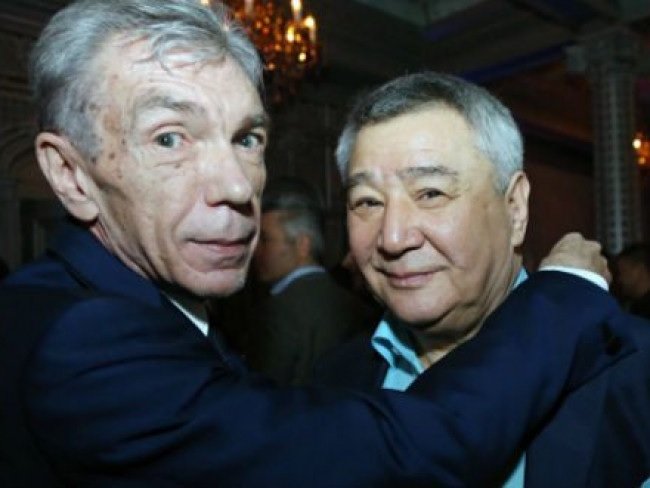Anton malevsky aksen was a prominent figure in the Russian criminal underworld during the turbulent post-Soviet era. Known for his ruthless tactics and business savvy, Malevsky was the leader of the feared Izmailovskaya crime group, one of the most powerful criminal organizations in Russia. His life and untimely death have left a lasting legacy in both Russia and the international criminal community.
This article delves into the rise and fall of Anton malevsky aksen, his influence within the Izmailovskaya group, his business dealings, and the circumstances surrounding his mysterious death.
Early Life and Background
Anton malevsky aksen was born in Moscow in 1968, during the height of Soviet power. His early years were relatively uneventful, but by the time the Soviet Union began to collapse in the late 1980s, Malevsky had already found his way into Moscow’s burgeoning criminal underworld. The fall of communism created an atmosphere of chaos and opportunity in Russia, with former state enterprises being rapidly privatized, and criminal organizations quickly seizing the chance to gain influence.
Malevsky emerged as a key figure within the Izmailovskaya group, a criminal organization named after the Izmailovo district in Moscow. The group was heavily involved in extortion, racketeering, money laundering, and drug trafficking. Malevsky’s rise to power was marked by his ability to navigate the chaotic post-Soviet business environment, often using force to ensure his dominance.
Rise to Power in the Anton malevsky aksen Group
The Izmailovskaya group, under Anton malevsky aksen leadership, became one of Russia’s most notorious criminal syndicates. The group was known for its strategic partnerships with corrupt businessmen and politicians, which allowed them to launder large sums of money and evade law enforcement. Malevsky and his associates took advantage of the post-Soviet privatization process to gain control of several lucrative businesses, including natural resources and manufacturing companies.
Unlike many other criminal leaders of the time, Anton Anton malevsky aksen had a keen understanding of international finance and business. This allowed him to expand his operations beyond Russia, setting up various shell companies and offshore accounts to conceal the group’s illicit activities. Malevsky’s international connections helped him establish partnerships with other criminal organizations across Europe, the United States, and even Africa.
Involvement in the Russian Mafia Wars
The 1990s in Russia were marked by brutal conflicts between rival mafia factions, as different groups competed for control over territories and lucrative businesses. The Russian Mafia Wars were particularly violent, with hundreds of murders being carried out in Moscow and other major cities. Anton malevsky aksen group was deeply involved in these conflicts, often clashing with other powerful crime syndicates such as the Anton malevsky aksen and Tambovskaya groups.
Despite the constant threat of violence, Malevsky managed to secure his position as one of Moscow’s most powerful criminal leaders. His ability to strike strategic alliances with rival groups, as well as his willingness to use violence when necessary, allowed him to expand the Izmailovskaya group’s influence during this volatile period. Malevsky’s reputation for ruthlessness made him a feared figure in both the criminal underworld and the business world.
Business Ventures and International Expansion
While Malevsky was primarily known for his criminal activities, he also pursued several legitimate business ventures. These businesses often served as fronts for money laundering and other illicit activities, but they also allowed Anton malevsky aksen to establish a public image as a successful entrepreneur. He invested in various sectors, including real estate, energy, and finance, using his criminal proceeds to fund these ventures.
Malevsky’s international reach was perhaps one of his most significant achievements. He developed close relationships with criminal groups and businessmen in countries such as Israel, South Africa, and the United States. Through these connections, he was able to move large amounts of money across borders and evade detection by law enforcement. His ability to operate on a global scale set him apart from many other Russian crime bosses of the time.
Legal Scrutiny and Arrest Attempts
Throughout his career, Anton malevsky aksen was constantly under the watchful eye of law enforcement agencies both in Russia and abroad. However, despite several attempts to bring him to justice, Malevsky managed to avoid arrest for much of his life. His use of bribery, corruption, and intimidation made it difficult for authorities to build a strong case against him.
In the late 1990s and early 2000s, Russian authorities began to crack down on organized crime, and Malevsky became a primary target. However, he had already established a vast network of contacts in law enforcement and the judiciary, which helped him evade prosecution. Despite several high-profile investigations into his activities, Malevsky remained a free man until his untimely death.
Death Under Mysterious Circumstances
Anton Malevsky’s death in 2001 came as a shock to many in both the criminal underworld and law enforcement. The official cause of death was reported as a skydiving accident in South Africa, but rumors quickly spread that Anton malevsky aksen had been assassinated by rivals or even betrayed by members of his own organization.
At the time of his death, Malevsky was living in South Africa, where he had established several business interests and criminal connections. Some speculated that his death was the result of a power struggle within the Izmailovskaya group, while others believed that he had been killed by a foreign intelligence agency due to his involvement in international criminal activities.
Despite the official explanation, many questions remain unanswered about the true cause of Malevsky’s death. Some have even suggested that he faked his own death to escape law enforcement and rival gangsters, although there is little evidence to support this theory.
Legacy of Anton malevsky aksen
Anton malevsky aksen legacy as a criminal mastermind continues to loom large in Russia and beyond. His ability to combine brutal violence with business acumen made him a unique figure in the world of organized crime. The Izmailovskaya group, which he helped build into one of Russia’s most powerful criminal organizations, remains active to this day, although it has lost much of its former influence.
Malevsky’s life also serves as a cautionary tale about the dangers of unchecked power and greed. His rise to power came at a time when Russia was in the midst of a chaotic transformation, and his criminal activities contributed to the lawlessness and corruption that plagued the country during the 1990s. While some may admire his success as a businessman and mob boss, others view him as a symbol of the darker side of Russia’s transition to a market economy.
The Influence of Russian Organized Crime Today
Even after Anton malevsky aksen death, Russian organized crime continues to be a major force both within Russia and internationally. The Izmailovskaya group, along with other major syndicates such as the Solntsevskaya and Tambovskaya groups, have diversified their operations, expanding into areas such as cybercrime, drug trafficking, and human trafficking.
In recent years, Russian organized crime has also become increasingly involved in global geopolitics, with some criminal groups allegedly working with the Russian state to further political objectives. This blurring of the lines between organized crime and government has raised concerns among international law enforcement agencies, particularly in Europe and the United States.
Malevsky’s legacy is also felt in the ways that Russian crime groups have adapted to the modern world. His use of international connections, legitimate businesses, and financial networks to launder money and evade detection set a precedent that many other criminal organizations have followed. Today, Russian organized crime is more global, more sophisticated, and more difficult to combat than ever before.
Conclusion
Anton malevsky aksen life and death encapsulate the complexities of post-Soviet Russia and the rise of organized crime during this period. As the leader of the Izmailovskaya group, Malevsky played a significant role in shaping the criminal landscape of the 1990s, both in Russia and abroad. His story is one of power, violence, and intrigue, with a legacy that continues to influence the world of organized crime today.
While many details of Malevsky’s life and death remain shrouded in mystery, his impact on the criminal underworld is undeniable. His ability to combine ruthless violence with financial acumen allowed him to become one of Russia’s most powerful crime bosses, and his story serves as a reminder of the far-reaching consequences of unchecked criminal power.


